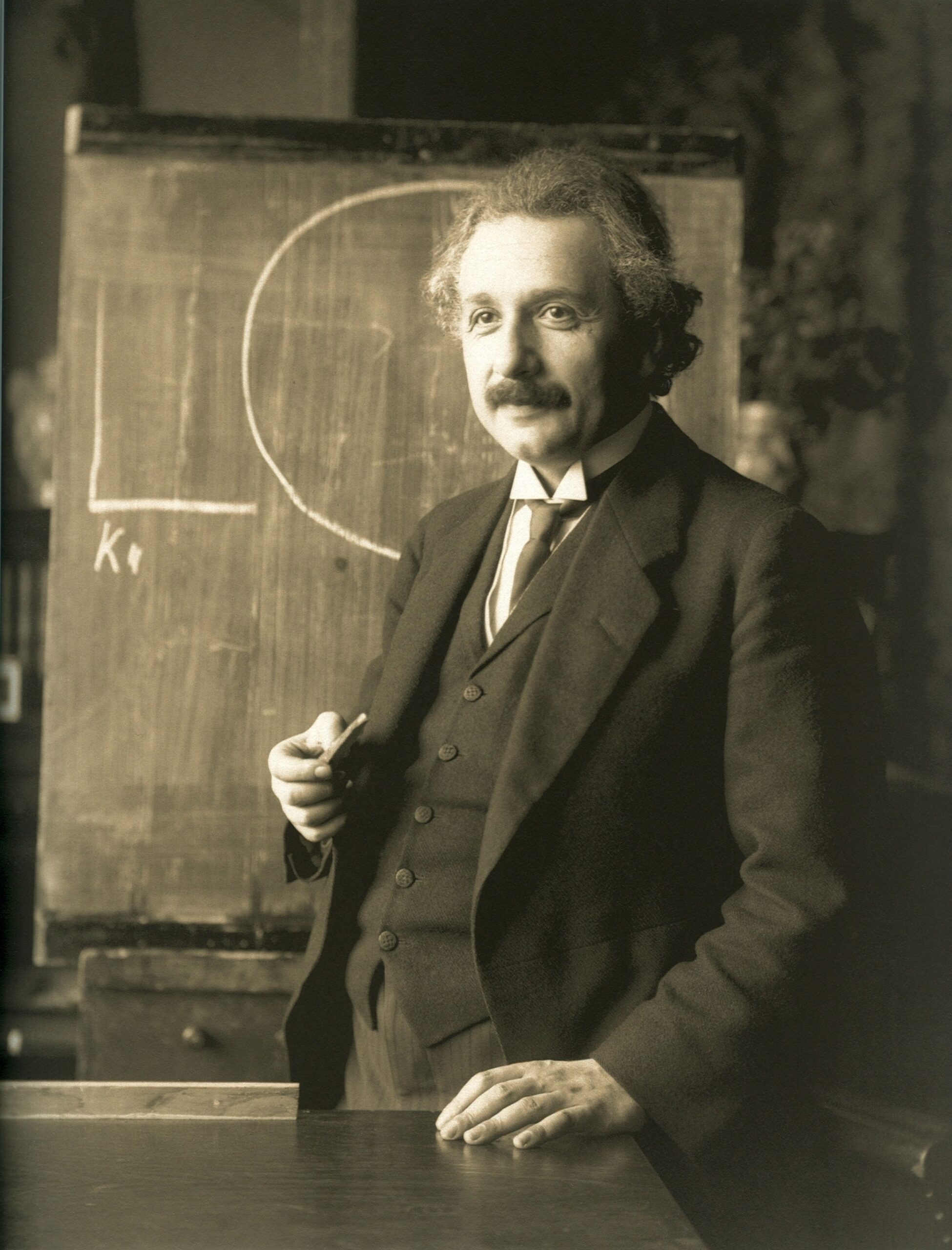Einstein syndrome appears in those children who take more than two years to start talking and are even misdiagnosed with autism. However, over time, they show high intelligence and no communication problems.
Einstein syndrome defines those children who develop their speech and language skills later than the rest . Many parents get worried when their children turn two and only express a few words clearly. However, it is interesting to know that “late talkers” make up almost 15% of the population.
Furthermore, one of those people who fell into this category was the father of the theory of relativity himself. Yes, Albert Einstein was a child who didn’t speak concrete, meaningful sentences until he was 5 years old . His family was also alarmed, and for a long time they thought that maybe little Albert was intellectually retarded.
However, the world of science would not be the same without that man who took a long time to communicate effectively. And he’s not the only one. There are many people who in the first years of life show a slow development in the communication process .
However, in some cases, they hide high intellectual skills.
What is Albert Einstein Syndrome?
Few things obsess parents more than their children with not meeting all the expected developmental milestones for their age. We want them to reach those percentiles and growth markers so we know everything is “going well”. However, this is not always the case, but that does not mean that something is wrong.
For example, research papers such as those carried out in the communication disorders department at the University of Wisconsin-Madison tell us something interesting. Most children who start talking late assume age-appropriate language skills . This delay eventually adjusts itself.
However, it is important to understand that if there is a delay in the development of a skill, it is important to consult an expert. Early attention is critical in many cases to reduce the impact of a problem should it arise. Thus, it is interesting to know that what is known as “slow or late development” is particularly common in speech and language processes.
Hence the origin of the name “Albert Einstein syndrome”.
Smart kids who talk late
Einstein syndrome does not appear in any diagnostic manual. It’s just a label to describe a phenomenon that appears frequently. There are many children who are slow to speak, but over time they show high intellectual abilities .
The term was coined by the American economist Evan Thomas Sowell. He popularized it as a result of his book
Late-Talking Children in 1997. He later published another work with Dr. Stephen Camarata titled The Einstein Syndrome: Bright Children Who Talk Late .
The Doctor. Camarata, professor of hearing and speech sciences at Vanderbilt University, highlighted something important in this work. Many children are misdiagnosed with autism spectrum disorder (ASD) because they take more than two years to speak.
It is necessary to provide more adequate and personalized attention to each child. Furthermore, there can sometimes be other latent language disorders that need to be identified as soon as possible. Other times it is just due to further development .
There is also another outstanding factor: there are children with a high intelligence quotient ( IQ ) who later develop this communicative competence.
Some of the children diagnosed as “late speakers” will overcome this delay by gradually demonstrating brilliant skills due to their high IQ.
What are children with Einstein syndrome like?
In the book Einstein Syndrome: Brilliant Children Who Talk Late , we find the characteristics that define these little ones. However, if any of our children present this delay in speech, it is advisable to consult the pediatrician . We cannot fall into self-diagnosis.
Let’s look at the characteristics that Evan Thomas Sowell and Dr. Stephen Camarata defined in 2002:
- Inability of children to express a correct sentence even after the age of two. They have a very small vocabulary and they mispronounce most of these words.
- They show great musical interests and skills.
- They have good motor skills, including fine motor skills.
- They have a great memory.
- They are decisive.
- They have very specific interests and they deepen them, they are eager to expand their knowledge .
- They often take a long time to go to the bathroom on their own.
- When they are doing something, they focus their attention on it for a long time.
In conclusion, it is important to note that we do not have extensive information on Einstein syndrome beyond this book and opinion articles. It is a reality that still needs more studies and analysis by specialists. For now, it’s just worth remembering something very basic.
Each child shows their own pace of growth and maturation. Respecting this process and understanding each child’s particular and unique needs is essential. Before pressing, judging or labeling, let’s try to understand.









































